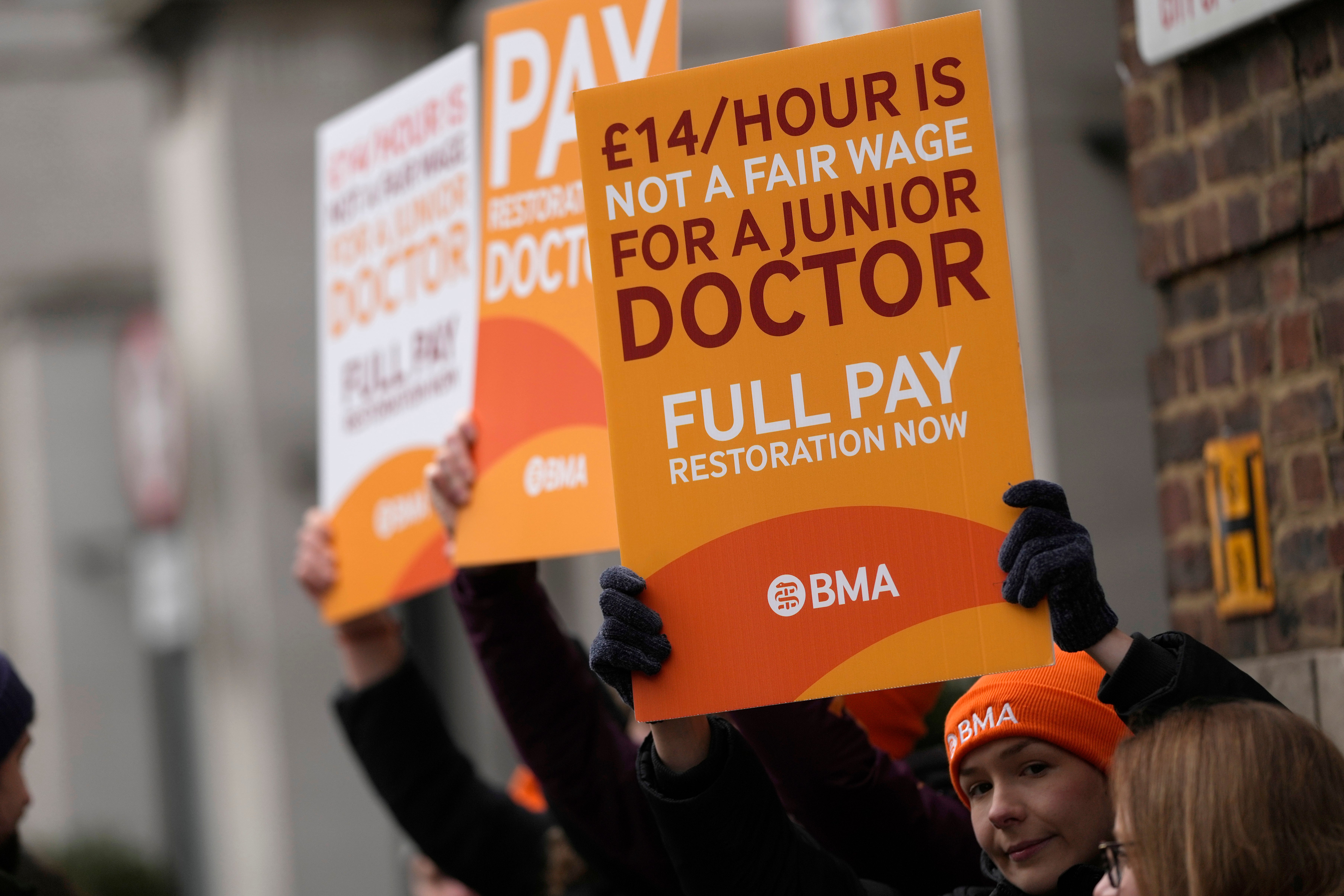Doctors in England begin a 3-day strike over pay at busy time of the year in National Health Service
Doctors in the early stages of their careers in England have started a 72-hour strike in their long-running dispute over pay levels

Your support helps us to tell the story
From reproductive rights to climate change to Big Tech, The Independent is on the ground when the story is developing. Whether it's investigating the financials of Elon Musk's pro-Trump PAC or producing our latest documentary, 'The A Word', which shines a light on the American women fighting for reproductive rights, we know how important it is to parse out the facts from the messaging.
At such a critical moment in US history, we need reporters on the ground. Your donation allows us to keep sending journalists to speak to both sides of the story.
The Independent is trusted by Americans across the entire political spectrum. And unlike many other quality news outlets, we choose not to lock Americans out of our reporting and analysis with paywalls. We believe quality journalism should be available to everyone, paid for by those who can afford it.
Your support makes all the difference.Doctors in the early stages of their careers in England started a 72-hour strike Wednesday in their long-running dispute with the British government over pay levels.
Patients in Britain's state-owned National Health Service have been warned that there will be “significant disruption," with thousands of appointments and procedures postponed or even canceled. The strike began at 7 a.m. and will run until Saturday morning.
Tens of thousands of so-called junior doctors, which make up around half of the medical workforce in the NHS, will also go on strike for a six-day stretch early next year, the longest walkout in the health service's 75-year history.
They are seeking a 35% pay rise, a figure they say takes into account years of below-inflation rises and will prevent an exodus of staff to other countries. The government though is offering junior doctors an average increase of 8.8% and Prime Minister Rishi Sunak has indicated there won't be more on offer.
“I obviously appreciate that people are upset about missing elective appointments and outpatient appointments, but if we don’t act now then five or 10 years down the line there won’t be any doctors left and those appointments will become much worse and much longer than they are,” said 30-year-old Hamish Bain on a picket line at University College Hospital in London.
NHS leaders have expressed “disappointment” that talks between the British Medical Association, which represents the doctors, and the government broke down and said that the fresh round of industrial action has come at the “worst possible time” for the health service.
“This is coming at the worst possible time of year for us where we are beginning to see those winter pressures that we always see around the festive season, with flu cases and COVID cases on the rise," said Stephen Powis, national medical director for the NHS in England.
“So there is no doubt this is going to be a challenging period and we will see disruption once again," he added.
The more senior consultant doctors from the BMA in England have reached a deal with the government, with members currently voting whether or not to accept the deal. Specialist, associate specialist and specialty doctors in England have also come to an agreement, which is being put to members.
While on strike, hospitals will provide minimal care similar to public holidays, when only emergency procedures are available and routine appointments or procedures are postponed or canceled.
The strikes across the NHS, which began last year, have so far affected more than 1 million appointments and procedures at a cost of around 2 billion pounds ($2.5 billion).